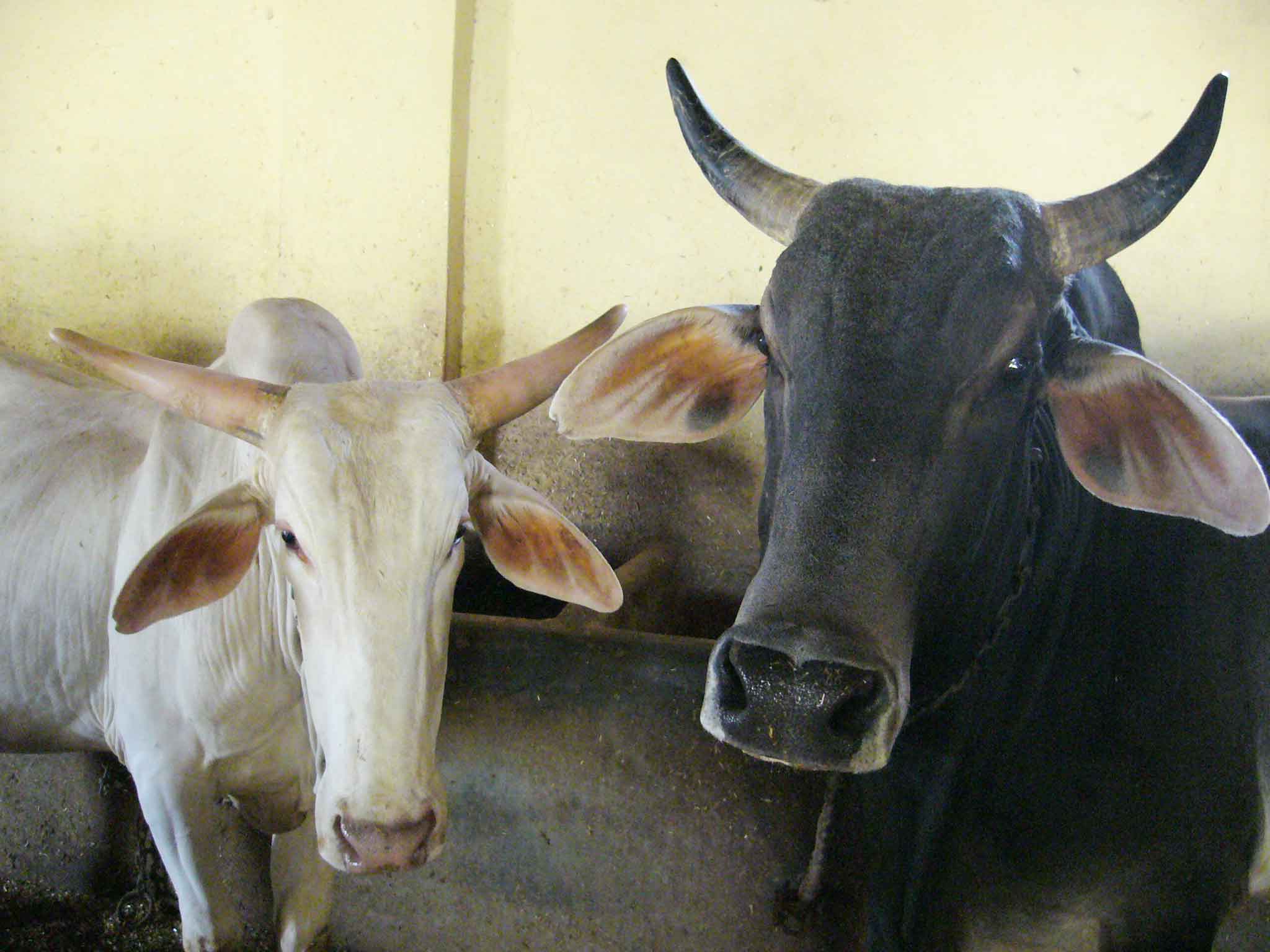Uttama Bhakti
Uttama Bhakti
Dedicated to Sri Haridas Sastri Maharajji
Dedicated to Sri Haridas Sastri Maharajji
Go-seva
 It is important to clarify that the Sanskrit word “Go” refers only to the bulls and cows native to India. In fact, the Go of this sacred land descend from the primordial divine Go and form integral part of India’s ancient culture. Service of this Go is one of the prominent features of Mahārājjī's application of bhakti.
It is important to clarify that the Sanskrit word “Go” refers only to the bulls and cows native to India. In fact, the Go of this sacred land descend from the primordial divine Go and form integral part of India’s ancient culture. Service of this Go is one of the prominent features of Mahārājjī's application of bhakti.
Why do Go have such a special position?
In the first place, Go is supremely beneficial for the whole society. It is difficult to imagine our life without milk and milk-based products, many of which are used also for medical purposes. Gobar (cow dung) is the only excrement in the entire animal and human realm that is pure and is known for its strong purifying effect. Urine of Go has purificatory and medicinal effects, too, such as elimination of kidney stones.
"Go, the universal mother"
From a broader point of view, Go has been created by the Lord to teach dharma to human beings. Dharma is that which sustains and nurtures the world, without it the society is plagued by disorder, chaos and suffering. To be able to perform dharma, humankind needs to adopt higher qualities, of the two of which - not causing pain (niraparādhī) and always helping others (paropakārī) - Go is a perfect example. As it is her maternal love which nurtures and protects everybody, and makes the society happy and peaceful, śāstra declares that "Go are mothers of all creatures and givers of all bliss."
"Go is God of even God Himself"
The Vaiṣṇavas follow the supreme dharma (paro dharma), where all that they do is for the pleasure of Kṛṣṇa. Kṛṣṇa adores Go, because they act in the same way as Him – helping all and not hurting anyone. He adores them so much that He also worships them, which makes them even more worshipful for us. In reality the whole community where Kṛṣṇa lives is characterized by the presence of Go (Gokula, Govardhana, gopīs, gopas, Govinda, Gopala etc). How can we possibly serve and love Kṛṣṇa if we ignore this essential aspect of His life?
Ekatā and ānukūlya
If we serve Go and obtain their qualities, this automatically produces unity (ekatā) in our hearts with our Gurujī and Kṛṣṇa, and we will act favourably (ānukūlya) towards them and all living beings. That also means that if Go-sevā is undertaken on a large scale, these sentiments will become prominent in the whole society.
Go is the abode of all gods
But even those who are not devotees of Kṛṣṇacan benefit from Go-sevā. As Go is the abode of all gods and it is to these gods that people pray to achieve their material goals, by worshipping Go one can achieve even greater result than by worshipping a particular god. Śāstra gives many examples of this.
Śrī Haridās Nivās
 Probably the only place in the whole world where Go-sevā is absolutely selfless is Śrī Haridās Nivās in Vṛndāvana. Go are considered the highest members of the family and are not exploited in any way. Their milk is given to the baby calves, and once they have taken their fill the remainder is milked so that Mothers Go are well at ease and do not get ill. This milk is then offered to Kṛṣṇa and is shared amongst the inhabitants of the āśram.
Probably the only place in the whole world where Go-sevā is absolutely selfless is Śrī Haridās Nivās in Vṛndāvana. Go are considered the highest members of the family and are not exploited in any way. Their milk is given to the baby calves, and once they have taken their fill the remainder is milked so that Mothers Go are well at ease and do not get ill. This milk is then offered to Kṛṣṇa and is shared amongst the inhabitants of the āśram.
The gośālās are well equipped and have all the comfort necessary. Each day Go are offered sufficient fresh food and water along with laḍḍū or gur (types of sweets) depending on the season. Of more than 200 Go, around 40% are bulls. From a material point of view, they do not serve much purpose, but in Śrī Haridās Nivās this is not considered; only their well-being is cared for. Also, it is only pure Go that are protected here; hence no cross-breeding to increase their yield etc is allowed.








